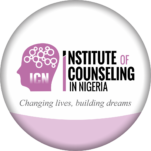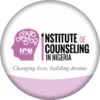Counseling could be said to have started as a result of World War II when the U.S. military had a strong need for vocational placement and training (wikipedia.org/wiki/Counseling). Ever since that time, counseling as a profession has progressively expanded and is now represented in numerous countries around the world. Furthermore, the traditional and indigenous treatment and healing methods that may predate modern counseling methods by hundreds of years remain of significance in many non-Western and even Western countries. However, the concept of counseling is relatively new in Africa and has been embraced by most developing nations Nigeria inclusive, with enormous enthusiasm. This is because counseling is being regarded by most nations as an educational service through which efficient manpower for development can be attained. Counseling practice, however, does run into frequent clashes with African traditions and development goals typical of developing countries. Such traditions include: Poverty amongst the populace, Illiteracy level in the land, Religious belief, Laziness, Ignorance and Poor training amongst others.
According to Omoniyi Iyabo (2016), Counseling is the service offered to the individual who is undergoing a problem and needs professional help to overcome it. The problem keeps him disturbed, high strung and under tension and unless solved his development is hampered or stunted. Counseling therefore is a more specialized service requiring training in personality development and handling exceptional groups
of individuals. Additionally, Willey and Andrew (2011), defined Counseling as involving two individuals, one seeking help and the other a professionally trained person who helps to solve problems, orient and direct him towards a goal which leads to his maximum development and growth. Counseling services are therefore required for individuals having developmental problems because of the handicap they suffer in any area of emotional either because of hereditary factors or environmental conditions.
Therefore, since professional counseling requires a well trained counselor and enlightened populace, it is very necessary for collaboration between government and the Association for Counseling, Matchmaking and Psychotherapy of Nigeria for funding and massive advocacy respectively. Additionally, the way the course is being taught in higher institutions could be structured in such a way that fresh graduates are mandated to undergo certain number of months or even a year understudying a more senior and experienced counselor operating a well recognized center. This is what is obtainable in the fields of Medicine where a fresh graduate has to undergo what is called Housemanship just to understudy senior colleagues – the Consultants. The Law as a profession also has similar approach where young graduates attached themselves to Chambers of senior colleagues for the purpose of understudying them. This is just to mention but a few examples.
In the same vein, I am also of the opinion that the present day counseling in Nigeria should move further from the traditional counseling to the preventive/developmental models with an added emphasis on diagnosis and treatment strategies. This is what is obtainable in most countries where clinical counseling is entrenched due to its efficacy in achieving desired result.
I believe the above observations if judiciously implemented, could facilitate the development of professional counseling career in my country – Nigeria.
Rukayat Musa
Professional Counselor in Crisis & Substance Abuse
e-mail: rukee45@gmail.com, instagram: Hope Restoration Network, twitter handle: @rukayat musa, fb: rukayat musa
+2347061153248


